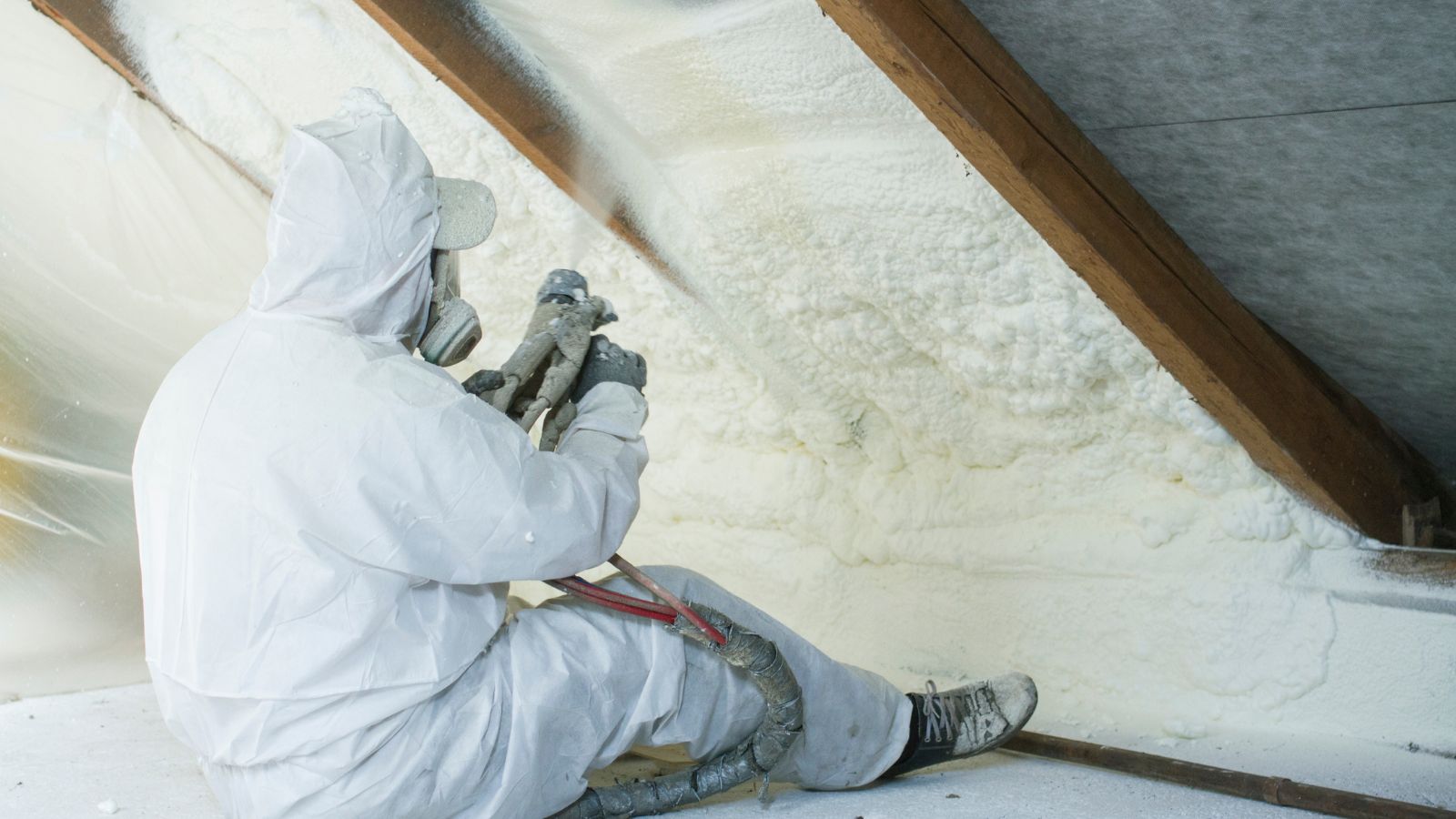
19 Jul Benefits of Spray Foam Insulation versus Traditional Insulation
When considering insulation for your home or business, it’s crucial to choose a solution that offers the best performance, energy efficiency, and longevity. Traditional insulation methods, such as fiberglass and cellulose, have been popular for decades. However, spray foam insulation is increasingly becoming the preferred choice for many homeowners and contractors. In this blog post, we’ll explore the key differences between traditional insulation and spray foam insulation, and why spray foam insulation stands out as the superior option.
Traditional Insulation: An Overview
Traditional insulation materials, including fiberglass batts and cellulose, have been used for many years to provide thermal resistance in buildings. Here are some of their characteristics:
Fiberglass Insulation
- Composition: Made from fine strands of glass fibers.
- Installation: Typically installed in batts or rolls, fitting between wall studs and ceiling joists.
- R-Value: Offers an R-value (thermal resistance) of around 2.2 to 2.7 per inch.
- Pros: Affordable and easy to install for DIY projects.
- Cons: Can be less effective if not installed properly, prone to gaps and air leaks, and can lose effectiveness if it becomes wet.
Cellulose Insulation
- Composition: Made from recycled paper products, treated with fire retardants.
- Installation: Blown into wall cavities or attics using specialized equipment.
- R-Value: Offers an R-value of around 3.2 to 3.8 per inch.
- Pros: Environmentally friendly and good at reducing air leaks.
- Cons: Can settle over time, losing some of its insulating properties, and can be affected by moisture.
Spray Foam Insulation: The Superior Choice
Spray foam insulation has revolutionized the insulation industry with its superior performance and versatility. Here’s why it stands out:
Composition and Application
- Composition: Made from a combination of isocyanate and polyol resin, which react to create a foam that expands and hardens.
- Application: Sprayed onto surfaces, where it expands to fill gaps, cracks, and cavities, creating an airtight seal.
Benefits of Spray Foam Insulation
- Superior R-Value: Spray foam insulation offers an impressive R-value of around 6.0 to 7.0 per inch, providing better thermal resistance than traditional materials.
- Air Sealing: The expanding nature of spray foam creates a continuous barrier that seals all gaps and cracks, significantly reducing air leakage and improving energy efficiency.
- Moisture Resistance: Unlike fiberglass and cellulose, spray foam is impermeable to water, helping to prevent mold and mildew growth.
- Longevity: Spray foam maintains its shape and insulating properties over time, without settling or deteriorating.
- Energy Savings: By reducing air leaks and improving thermal resistance, spray foam can lead to significant energy savings on heating and cooling bills.
- Sound Insulation: Spray foam also offers excellent soundproofing qualities, reducing noise transmission between rooms and from outside.
- Environmental Impact: Though not made from recycled materials, the energy savings and longevity of spray foam contribute to a reduced environmental footprint over time.
Comparing Costs and ROI
While the initial cost of spray foam insulation can be higher than traditional insulation, it’s essential to consider the long-term benefits and return on investment (ROI):
- Energy Savings: Spray foam’s superior insulating properties can lead to lower energy bills, often offsetting the higher upfront cost within a few years.
- Durability: With its long lifespan and resistance to moisture, spray foam reduces the need for frequent replacements and repairs.
- Increased Home Value: Homes with spray foam insulation can have higher resale values due to their energy efficiency and comfort.
Conclusion: The Benefits of Spray Foam Insulation
When weighing the benefits of spray foam insulation against traditional insulation methods, spray foam clearly emerges as the superior choice. Its higher R-value, air sealing capabilities, moisture resistance, and long-term durability make it an excellent investment for any property owner. For those looking to enhance their home’s energy efficiency, comfort, and overall value, the benefits of spray foam insulation are undeniable.
If you’re considering upgrading your insulation, contact A-1 Advanced Coating & Foam. Our expert team can help you experience the transformative benefits of spray foam insulation, ensuring your property is well-protected and energy-efficient for years to come.


Sorry, the comment form is closed at this time.